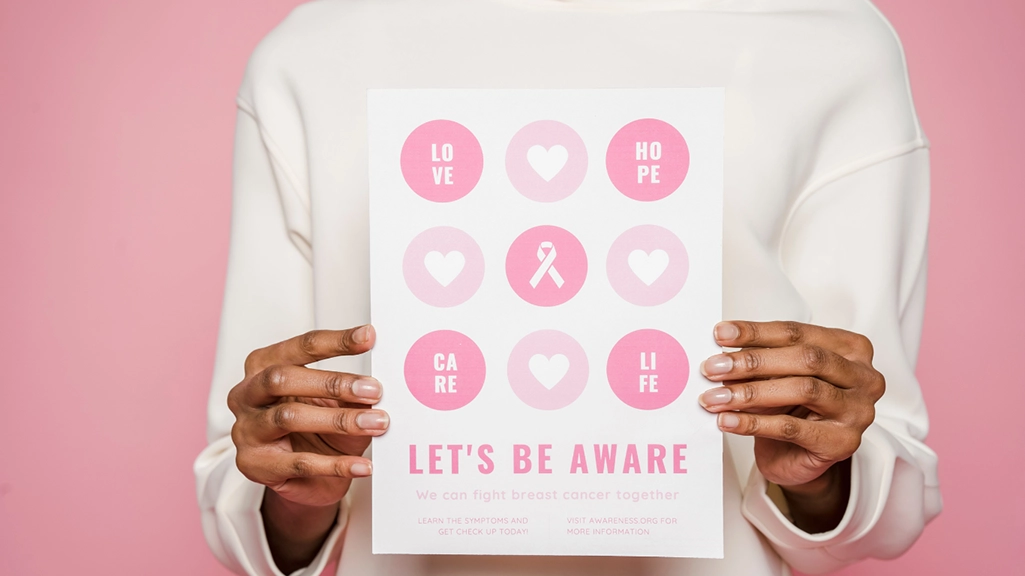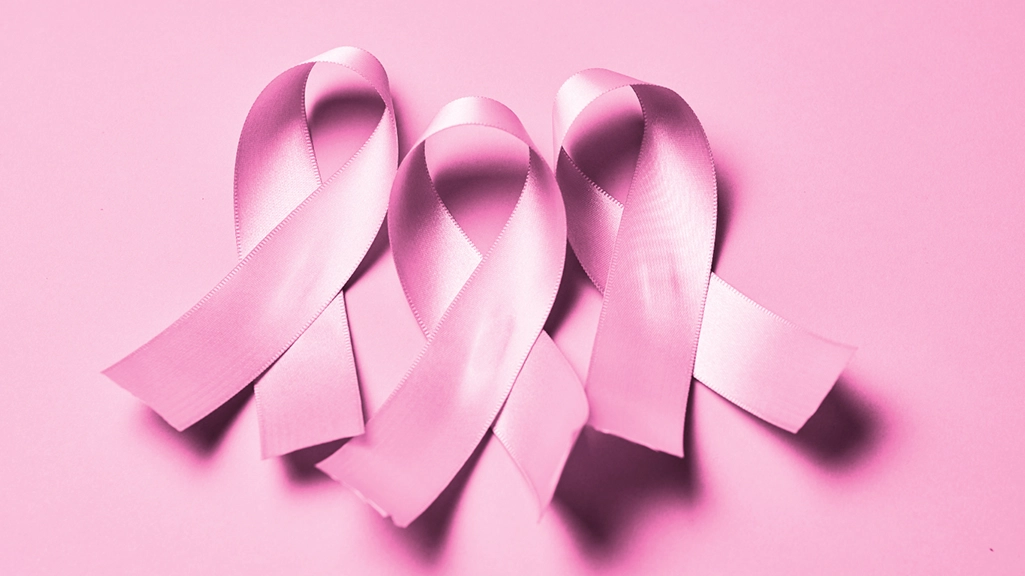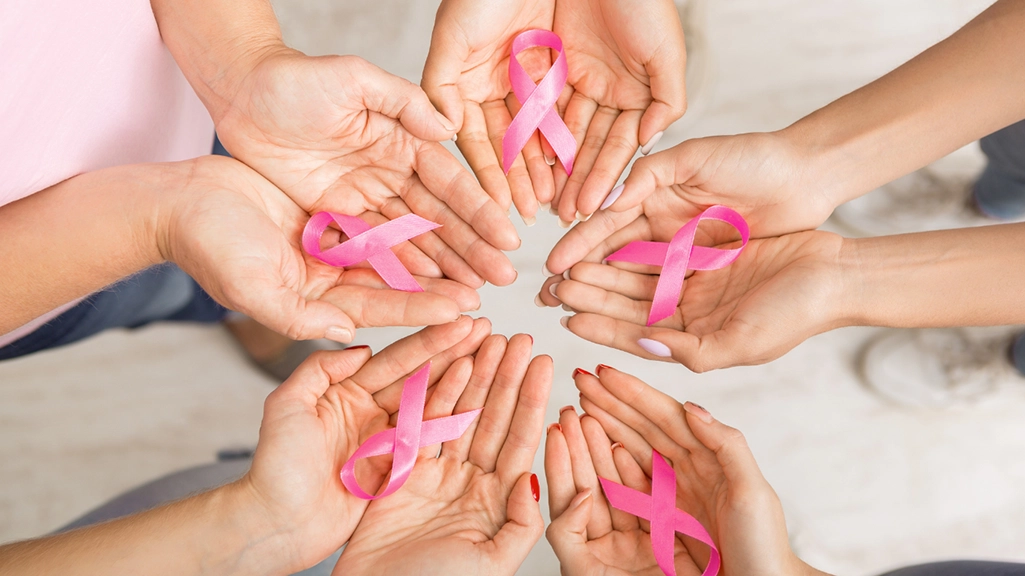At Bassett Creek Dental, October’s Breast Cancer Awareness Month holds special meaning. While we stand in solidarity with the many strong women in our community who are fighting or have survived breast cancer, we also want to offer helpful, compassionate care during every part of your health journey—including your oral health.
Many people don’t realize that cancer treatments like chemotherapy and radiation can have a significant impact on your mouth, teeth, and gums. Whether you’re newly diagnosed, in active treatment, or navigating survivorship, here’s what you should know—and how our dental team can support you every step of the way.
How Does Cancer Treatment Affect Oral Health?

Dry Mouth (Xerostomia)
Radiation therapy to the head or neck area and many chemotherapy drugs can reduce saliva production, causing dry mouth. Saliva plays a crucial role in protecting your teeth from decay and maintaining the health of your soft tissues.
Why it matters: Dry mouth increases your risk of cavities, mouth sores, and infections like thrush (a fungal infection).
Mouth Sores and Sensitive Tissues
Chemotherapy often affects the cells that line your mouth, leading to mouth sores, inflammation, and tenderness known as mucositis. These can make it difficult to eat, speak, or even brush your teeth comfortably
Weakened Immune Response
Cancer treatments can lower your immune system’s ability to fight off infections, including those in your gums. This puts you at higher risk for gingivitis or periodontal disease.
Increased Risk of Tooth Decay
Changes in diet, frequent vomiting, and the side effects of treatment can erode enamel or increase sugar intake—all of which can lead to tooth decay.
Bone Loss or Jaw Issues
In rare cases, certain cancer medications (like bisphosphonates) may affect jawbone health, especially after dental surgery. This is called osteonecrosis of the jaw, and it’s one more reason to keep your dentist informed of all treatments.
What Can You Do to Protect Your Oral Health During Treatment?
Visit the Dentist Before Starting Treatment
If possible, schedule a dental exam and cleaning before beginning chemotherapy or radiation. Treating any infections or cavities in advance can help reduce complications during treatment.
Practice Gentle but Thorough Oral Hygiene
- Brush with a soft-bristled toothbrush and non-abrasive fluoride toothpaste.
- Floss gently once per day (if approved by your care team).
- Use alcohol-free mouth rinses to soothe inflamed tissues.
Stay Hydrated
Sip water frequently throughout the day and consider using a saliva substitute if dry mouth becomes uncomfortable.
Eat Mouth-Friendly Foods
Choose soft, bland foods if your mouth is sore. Avoid spicy, acidic, or rough foods that may irritate sensitive tissues.
Tell Your Dental Team
Always share your cancer treatment plan and medications with your dental provider. At Bassett Creek Dental, we tailor your care based on your unique needs and collaborate with your oncology team if needed.
FAQ: Oral Health, Cancer Treatment, and Fluoridated Water

Can I still drink fluoridated water during chemotherapy or radiation?
Yes. Fluoridated water\ is safe to drink during cancer treatment and may even help protect your teeth. Fluoride strengthens tooth enamel, which is especially important if you’re experiencing dry mouth or are at increased risk of cavities due to treatment side effects.
If you’re dealing with mouth sores or sensitivity, drinking cool (not cold or hot) fluoridated water can also be soothing.
Is it okay to use fluoride toothpaste or mouth rinses during treatment?
In most cases, yes. Fluoride toothpaste can help prevent tooth decay and support enamel health, especially if you’re experiencing dry mouth or are unable to brush thoroughly. If you’re dealing with mouth sores, your dental provider may recommend a mild fluoride rinse without alcohol or additives to avoid irritation.
Will radiation or chemo permanently damage my teeth or gums?
Not always—but side effects like dry mouth, increased acidity, or weakened enamel can lead to long-term dental issues if not managed properly. That’s why early dental visits, good home care, and staying hydrated are so important. If radiation is targeted near your mouth or neck, your dentist may take extra precautions to monitor your jawbone and salivary glands.
What can I do if brushing hurts during treatment?
Try switching to a soft or ultra-soft toothbrush, using lukewarm water, and avoiding strong flavors like mint or cinnamon. Brush slowly and gently, and ask your dentist about special mouthwashes or oral gels that can help reduce discomfort and inflammation.
Should I delay dental care until after cancer treatment?
Ideally, see your dentist before starting treatment to address any urgent needs. During treatment, your dental care can be adapted to your energy levels and immune status. Routine cleanings and minor procedures may still be safe and beneficial—but always check with both your oncology and dental teams.
Can children undergoing cancer treatment safely drink fluoridated water?
Yes. Children who are being treated for cancer can still benefit from fluoridated water. It helps protect developing teeth from decay, especially if brushing and flossing routines are disrupted by treatment.
You’re Not Alone—We’re Here for You

At Bassett Creek Dental, we believe in treating the whole person—not just their teeth. If you or someone you love is going through breast cancer treatment, we’re here to support you with gentle, personalized, and informed dental care.
Breast cancer may change your life—but it shouldn’t compromise your smile.
Ready to Talk With Us?
Whether you’re preparing for treatment or recovering after it, we’re here to help keep your mouth healthy and comfortable. Call us at 763.546.1301 or schedule your appointment online.

